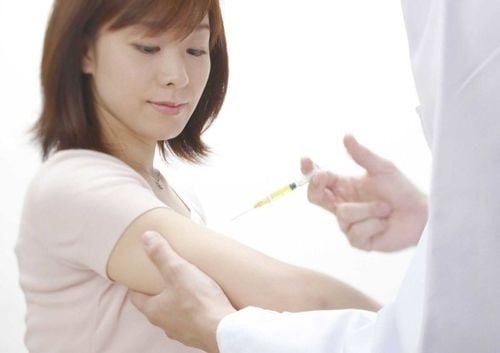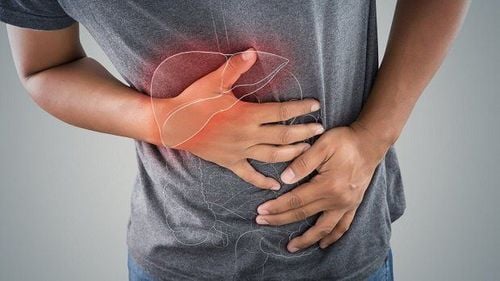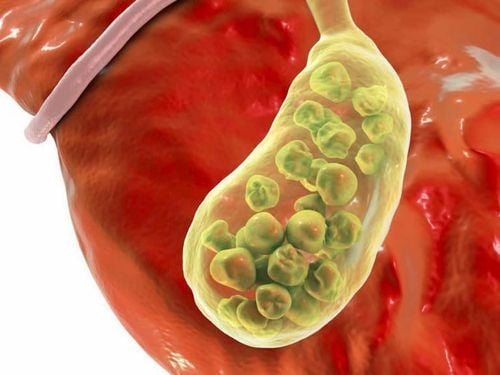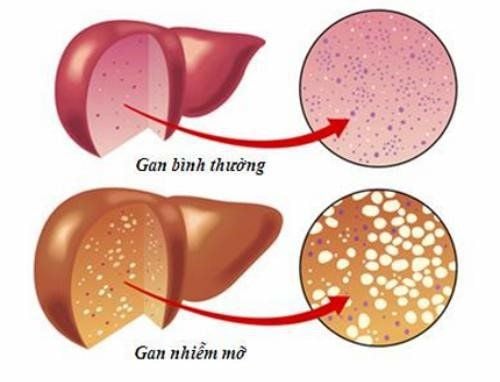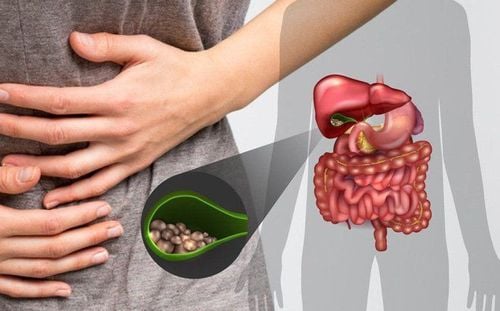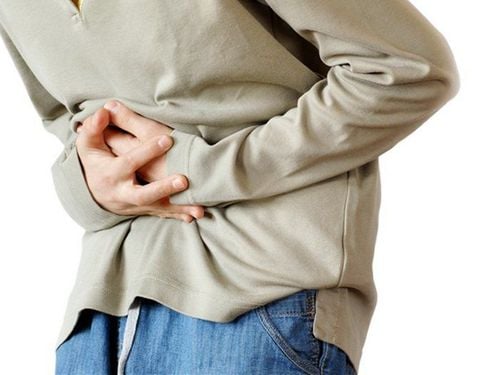This article has been professionally reviewed by a Gastrointestinal Endoscopy Specialist from the Department of Internal Medicine at Vinmec International Hospital, Da Nang.
Collapsed gallbladder is one of the common gallbladder conditions. There are many causes of this condition, including physiological causes and pathological causes. Depending on each specific case, the doctor will recommend a suitable treatment plan for the patient.
1. What is a Collapsed Gallbladder?
The gallbladder is a small, pouch-shaped organ located in the upper right part of the abdomen (beneath the liver). Its function is to concentrate and store bile produced by the liver. When we eat, particularly foods rich in fats, the gallbladder contracts to release bile into the bile ducts, then into the duodenum, where it mixes with food to digest fats. Any problem with the gallbladder can directly affect an individual's health.
A collapsed gallbladder occurs when it lacks bile or cannot secrete bile. This phenomenon temporarily renders the gallbladder nonfunctional, which may disrupt the digestive process and negatively impact the patient's health.
2. Symptoms of a Collapsed Gallbladder
Collapsed gallbladder symptoms often resemble those of other gallbladder diseases and may include abdominal pain, bloating, slow digestion, and an increased risk of gallbladder inflammation or infection. Specific symptoms include:
- Pain: Present in most gallbladder-related conditions, including a collapsed gallbladder. Pain typically occurs in the upper right abdomen and may range from mild and intermittent to severe and constant. In some cases, pain may radiate to the chest and back.
- Unusual stool or urine color: When the gallbladder malfunctions, stool may appear pale, and urine may become dark. These are signs of bile obstruction.
- Jaundice: Indicates bile flow obstruction due to gallbladder collapse.
- Other symptoms: Nausea and vomiting, fever or chills, and chronic diarrhea.

3. Why Does the Gallbladder Collapse?
Identifying the exact cause of gallbladder collapse is essential for determining the appropriate treatment. Common causes include:
- Physiological causes: Before undergoing an ultrasound or health checkup, the patient may have eaten a large meal, especially fatty foods like eggs, dairy, or fast food. When food enters the digestive tract, it stimulates the gallbladder to contract and release stored bile into the intestines to digest the food. As a result, the gallbladder empties and shrinks. This may appear as a collapsed gallbladder on ultrasound.
- Pathological causes: Conditions such as gallbladder inflammation caused by gallstones, thickened gallbladder walls, or the inability of the gallbladder to contract and store bile can cause the gallbladder to shrink over time. In these cases, physicians will recommend appropriate treatments based on the specific condition.
To determine the exact cause of a collapsed gallbladder, patients should visit a hospital for an ultrasound and proper diagnosis. It is recommended to fast for at least six hours before the ultrasound to obtain accurate results.
4. What Should You Do if You Have a Collapsed Gallbladder?
- Consume lean meats and white meats without fat.
- Increase the intake of fiber-rich foods and include plant-based proteins such as well-cooked legumes in your diet.
- Drink at least 2 liters of water daily to promote bile flow.
- Eat foods high in carbohydrates, as they are easy to digest and do not negatively affect bile production.
- Avoid chocolate or cocoa products.
- Avoid foods made with flour mixed with eggs, as they can be difficult to digest.
Adjusting your diet immediately upon discovering a collapsed gallbladder is crucial to prevent further decline in gallbladder function, which can affect fat digestion and overall health. Patients who experience symptoms of a collapsed gallbladder should visit a major hospital for timely diagnosis and treatment.
Currently, Vinmec International Hospital offers Liver and Gallbladder Screening Packages performed by highly skilled specialists with extensive experience in diagnosing liver and gallbladder diseases. Supported by modern equipment and advanced facilities, these packages can accurately identify gallbladder-related issues.
Please dial HOTLINE for more information or register for an appointment HERE. Download MyVinmec app to make appointments faster and to manage your bookings easily.




